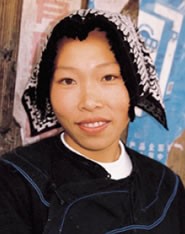Rao in China

Photo Source:
Copyrighted © 2026
Operation China, Asia Harvest All rights reserved. Used with permission |
Send Joshua Project a map of this people group.
|
| People Name: | Rao |
| Country: | China |
| 10/40 Window: | Yes |
| Population: | 13,000 |
| World Population: | 13,000 |
| Primary Language: | T'en |
| Primary Religion: | Ethnic Religions |
| Christian Adherents: | 0.00 % |
| Evangelicals: | 0.00 % |
| Scripture: | Translation Needed |
| Ministry Resources: | No |
| Jesus Film: | No |
| Audio Recordings: | No |
| People Cluster: | Bouyei |
| Affinity Bloc: | Southeast Asian Peoples |
| Progress Level: |
|
Introduction / History
The Rao claim to have migrated from Yunnan long ago. They say they were a Yao group who separated and gradually formed their own ethnic identity. During the Ming Dynasty (1368-1644) the Rao were repeatedly attacked by the Chinese.
The official classification of the Rao is a confusing matter. They are not recognized as a distinct group by the Chinese authorities, who have placed them as part of two other minority groups. The Rao in Majiang County have been officially included as part of the Yao nationality since 1991, while those in Duyun, about 100 kilometers (62 mi.) to the south of Majiang, have been counted as part of the Bouyei nationality. Before 1949 the Rao in Majiang used another name, which meant "sudden death."
What Are Their Lives Like?
The Rao are hardworking farmers. They live in Guizhou, a province with poor health care. Every November the Rao hold a winter festival where they remember their customs and acknowledge their uniqueness as a people. Each Rao village consists of members of the same family name. Rao people are only permitted to marry within their own clan. Single women wear an embroidered headdress; but once they are married, they wear black or dark blue headdresses.
What Are Their Beliefs?
In the past the Rao were animists, but they were forced to discontinue all spiritual practices during the antireligious campaigns of the Cultural Revolution in the 1960s.
The Rao are a relatively untouched people group. They have never had a single known Christian believer, and no more than a relative handful are aware of the existence of Jesus Christ. The person privileged to take the gospel to the Rao will need the tenacity of Samuel Zwemer, who stated, "Frequent set-backs and apparent failure never disheartened the real pioneer. Occasional martyrdoms are only a fresh incentive. Opposition is a stimulus to greater activity."
What Are Their Needs?
There is a need for health care teams to help them to adopt proper health care practices.
Prayer Points
Pray that Christian medical teams will have a vision to go into these communities, showing the love of Jesus in practical ways.
Pray that the Lord would reveal himself in visions to the Rao people, since there is little or no exposure to the gospel among them.
Pray that the Lord would begin to build his church among the Rao, despite no history of Christianity in their culture.
Pray for a spiritual movement among them that would erase their spiritual barrenness.